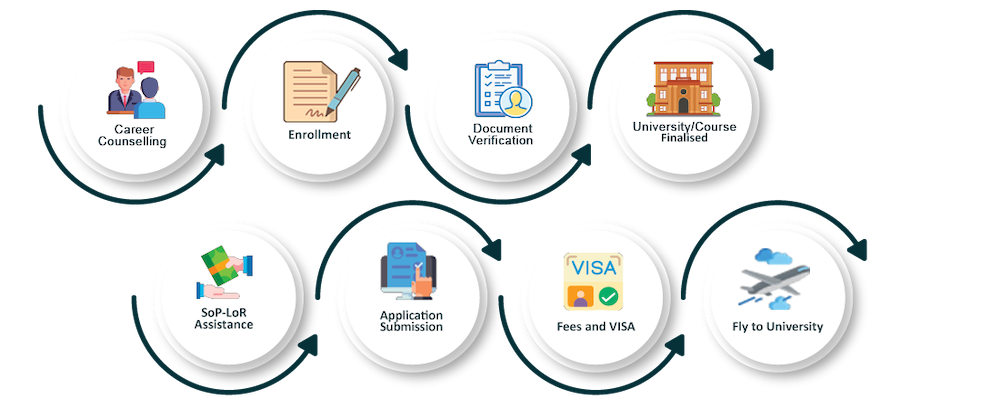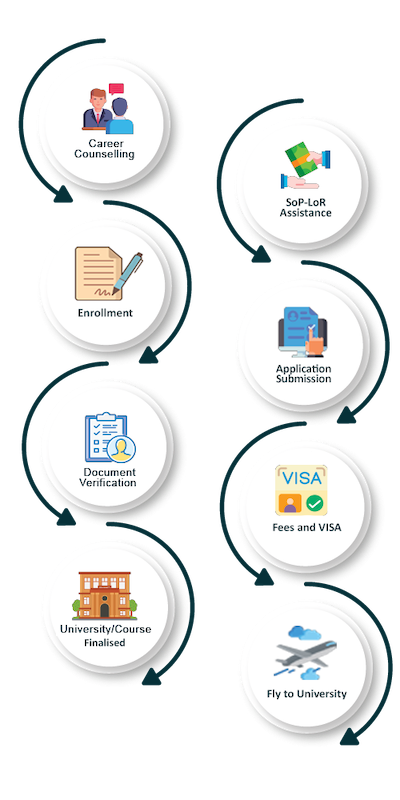Because it is in a quiet residential area, Dublin Business School has made a place for its students to study where they can be calm and focused. QQI recognizes the college's undergraduate and part-time degrees (Quality and Qualifications Ireland). Higher Education and Training Awards Council (HETAC) and Liverpool John Moores University are both connected with the institution. The Dublin Business School has six locations in Dublin, including its main campus on Aungier Street. Balfe Street, Dame Street, and South Great George's Street are among the other options. The South Great George's Street location of Castle House is a 35,000-square-foot building with IT labs, modern classrooms, administrative offices, and teaching offices. On the lively campuses, you can find all of the basic facilities, like classrooms, cafes, learning centers, labs, and libraries.
Near the main campus, there are apartments for students and host family housing that is privately owned. Within walking distance of Dublin Business School, homes like Point Campus in Point Village offer single, double, cluster, and ensuite rooms with monthly rents ranging from 600 euros to 1,100 euros. There are amenities such as washing machines, free internet access, standard rooms, a study area, bike storage, a laundromat, and security. The QS Stars Rating System has given Dublin Business School (DBS) four stars. DBS has joined an elite group of colleges and universities around the world in the ranking, which is thought to be one of the most important and trustworthy rankings for colleges and universities around the world. DBS also got 5 stars for online learning and being open to everyone, as well as 4 stars for teaching, employability, and academic development, among other things. DBS was given the renowned "4-Star" grading system in their first year of participation.
Dublin Business School focuses on high-quality education that is available to everybody. The thing that makes Dublin Business School stand out is that it focuses on training its students in accordance with professional organizations and industry standards so that they can get a good job. Paul Connolly (an international composer), Ray Shah (an Irish celebrity), and Ann Gleeson are among the most well-known graduates (an Irish radio personality).
The Times Higher Education World University Rankings and the Academic Ranking of World Universities both rank Dublin Business School as one of the best colleges in the world. Dublin Business School has kept these rankings for nearly ten years with very little change.

QS
98

THE
161

US News
105
| Course | Duration | Fee/Year |
|---|---|---|
| Bachelor of Arts in Marketing - Digital Marketing | 36 Months | EUR - 10,050 |
| Bachelor of Arts Business - Management | 36 Months | EUR - 10,050 |
| Bachelor of Arts in Film and Creative Media - Film Production | 36 Months | EUR - 10,050 |
| Bachelor of Legislative Laws - Contract Law | 36 Months | EUR - 10,050 |
| Course | Duration | Fee/Year |
|---|---|---|
| Master of Science in Supply Chain Management - Logistics and Transportation | 12 Months | EUR - 14,500 |
| Master of Science in Data Analytics - Data Mining | 12 Months | EUR - 14,500 |
| Master of Business Administration - General Management | 12 Months | EUR - 14,500 |
| Master of Science in Artificial Intelligence - Machine Learning | 12 Months | EUR - 14,500 |
| Master of Science in Human Resource Management - Talent Management | 12 Months | EUR - 14,500 |
| Master of Science in Applied Psychology - Clinical Psychology | 12 Months | EUR - 14,500 |
| Master of Science in Financial Technology - Financial Markets and Instruments | 12 Months | EUR - 14,500 |
| Master of Science in Management Practice - Strategic Management | 12 Months | EUR - 14,500 |
| Master of Science in International Accounting & Finance - Financial Accounting | 12 Months | EUR - 14,500 |
| Master of Science in Financial Analytics - Financial Modeling | 12 Months | EUR - 14,500 |
Dublin Business School is one of Europe's most vibrant institutes for business studies. Dublin Business School has courses that are interesting and unique, and it has students from over 110 countries who come to Ireland to study.
To get into Dublin Business School, you have to show that you can speak English well by doing well on international tests like the TOEFL, IELTS, or PTE, among others.


The job market in Ireland for overseas students is diversified. Here are the top five job opportunities in Ireland that international students should think about:
Students from Dublin Business School are hired by Accenture, the Bank of Ireland, Google, Microsoft, and other top companies.
Dublin Business School Graduates & Alumni Salaries - By Degree
| Course | Annual Package |
|---|---|
| Executive MBA | $58,000 |
| Bachelor of Science | $55,000 |
| Bachelor (Other) | $43,000 |
| Other Degree | $41,000 |
| Masters of Arts | $37,000 |
| MBA | $36,000 |
| Logistics, Operations & Purchasing | $59,000 |
| Program & Project Management | $54,000 |
| Finance Control & Strategy | $44,000 |
| Consulting, Accounting & Professional Services | $40,000 |
| Sales & Business Development | $39,000 |
| Executive Management & Change | $38,000 |
Dublin Business School has around 9,000 students, including both national and foreign students. As a well-known business school, DBS offers classes in many different areas, not just business and management. Students from more than 70 nations apply to the school's graduate, undergraduate, and postgraduate programs. The Dublin Business School gets hundreds of applications each year since the admission standards for English proficiency are not extremely stringent. This assists many overseas students in finding their desired courses at Dublin Business School. Nonetheless, admission to this prestigious business school's MBA program is extremely competitive.
The application review process usually takes six to eight weeks; however, it might take less time. When an overseas application is accepted, the Dublin Business School admissions committee sends an email to the applicant's email address to talk about the next steps. To minimize delays, it is best to stay active on email.
With over 9,000 students in total, Dublin Business School claims roughly 30% of its total students come from all over the globe. For further information about the student body, see the table below: Total students - 9,000+ International students- 2,700+ Nationalities represented - 70+
The fee structure for overseas students varies per course. On average, yearly tuition expenses vary from 14,000 to 18,000 euros.
The Bachelor of Arts in Global Business (Canada) program gives students a broad understanding of international business along with job placements and multicultural experience. Candidates will receive the relevant information and skills from two nations in four years. He or she will spend the first two years at DCU before transferring to Brock University in Canada for the last two years.
Liverpool John Moores University granted Dublin Business School accreditation in 1995.
There are three entrance intakes at Dublin Business School, with continuous deadlines. International students are welcome to apply for one of the following intakes: Dublin Business School Admissions: January, April, and September Dublin Business School has a flexible deadline schedule, so none of its programs have dates that are set in stone or made public. When the deadline for one intake ends, the window for the next intake immediately opens. Still, you should apply seven to eight months in advance to make sure you don't miss any chances. For example, students who want to start in September should start applying in January or February.